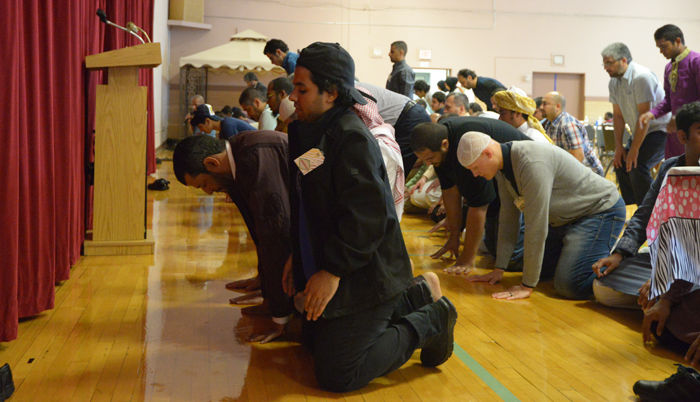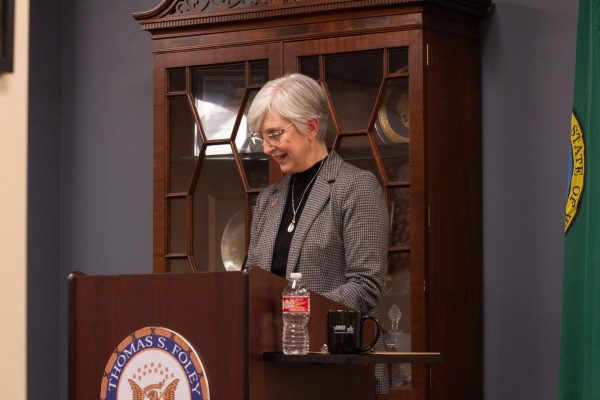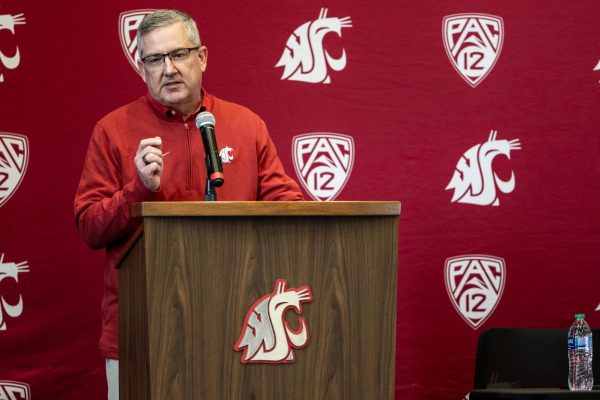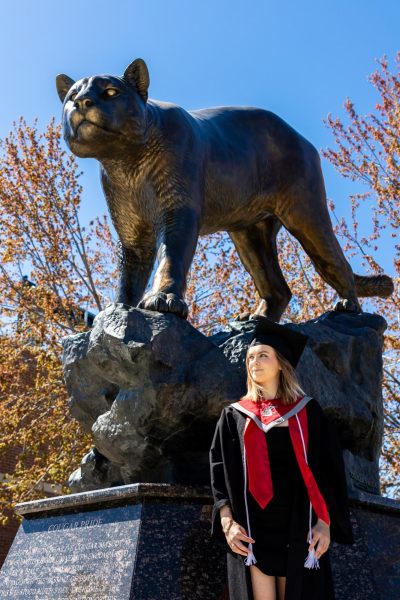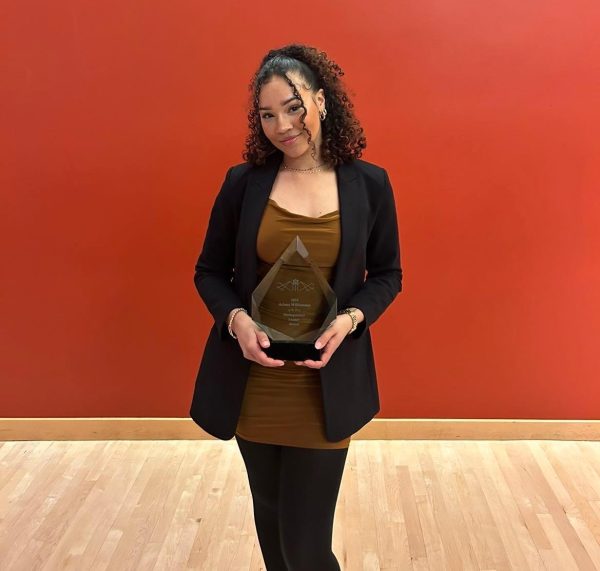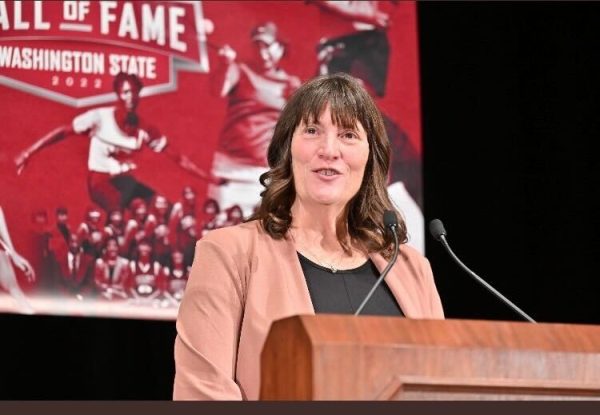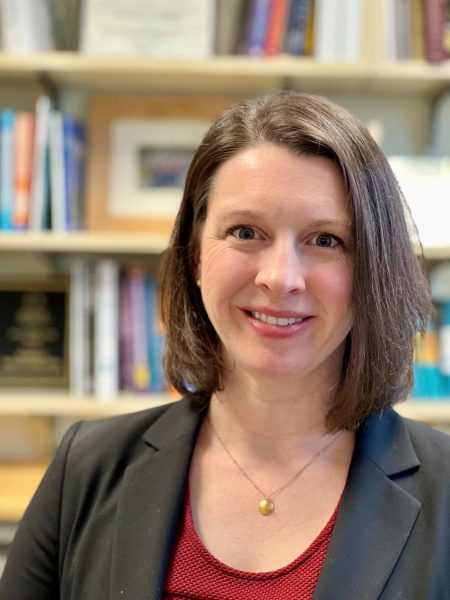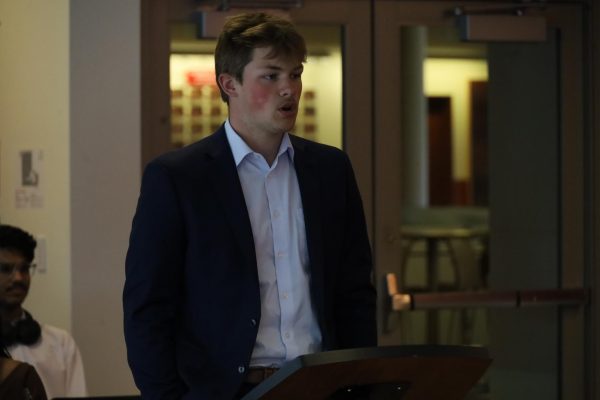Muslims and supporters celebrate Islamic holiday
July 10, 2016
{{tncms-asset app=”editorial” id=”1491aa3c-46fe-11e6-bd0b-d340f1213299″}}
Muslims and Islam supporters from across the Pacific Northwest gathered at the Gladish Community and Cultural Center on Saturday to celebrate Eid al-Fitr, an Islamic festival which marks the end of Ramadan and the breaking of a month-long fast.
Guests included University of Idaho President Chuck Staben, Pullman Mayor Glenn Johnson and Oussama Jammal, secretary general of the U.S. Council of Muslim Organizations (USCMO), an umbrella group for a number of Islamic organizations across the nation.
Between 300 and 400 people, many decked in traditional garments, attended the Eid al-Fitr Re-Union Event, hosted by the Muslim Forum of the Pacific Northwest. Following a feast and prayer, Jammal addressed the state of the Muslim community in America, citing violent incidents which occurred over Ramadan.
“Terrible things happened in a month that’s supposed to be the month of high spiritual living,” he said. “In a month to recharge our spiritual batteries … we have seen people claiming our own religion to do harmful things to other people.”
He explained that the American Muslim community has no association with ISIS, despite what the terrorist organization and islamophobic media outlets would have the world believe.
“They (ISIS) need to hear it loud and clear,” Jammal said, “that they do not represent us and we will never condone or accept whatever they’re doing.”
Mohamed Elsehmawy, a religious leader at the Islamic Center of Tri-Cities, which hosted the event last year, pointed to the fact that one meaning of the word Islam is “peace,” and that the Islamic greeting Assalamu ‘Alaikum means “Peace be upon you.”
“Islam is not ISIS, ISIS is not Islam,” Elsehmawy said. “God created us not to fight. He created us to spread the word of truth.”
{{tncms-asset app=”editorial” id=”b69457e8-46ff-11e6-b6b1-47077671fb7f”}}
Praising the religion’s message of peace, Staben said it has been “a challenging time for tolerance, for love between people.” He said both WSU and UI have a responsibility to help correct this.
“Universities have a very special role in our society,” Staben said. “We need to be beacons of tolerance; we need to be beacons for education and real leaders in our community.”
Though he said it can be difficult at first to understand other people, he said he has met many international students and, after cultivating a deeper understanding, learned much from them.
Jammal said that though American Muslims could have chosen any country, they picked America and what it stands for. He said he believes they are in the right place.
“We are loyal, proud, patriotic citizens in this country,” he said, “who care about it as much as anybody else.”
And as U.S. citizens, he said Muslims have an equal obligation to contribute to American society, to help solve its problems and shape its political future. To that end, he urged the crowd to vote in the upcoming election.
“We have to translate our faith into action.”
Oussama Jammal
secretary general, U.S. Council of Muslim organizations
“It is the most serious year, this election, and it was the most entertaining year as well,” he said to laughter from the crowd. “But it is the danger that is embedded in the entertainment that … Americans have to take seriously in this election.”
Beyond civic duty, Jammal told what faith groups, such as the Industrial Areas Foundation, have done to improve America. He said the foundation, a coalition of various religions, has worked on health care, affordable housing and assisted living, among other issues.
Its primary focus now is gun violence, particularly relevant in light of multiple gun-related incidents in recent days and weeks. Jammal highlighted the deaths of five police officers on Thursday in Dallas during a peaceful protest against the police killings of two black men earlier in the week.
“Violence will never be the answer to social injustice,” he said. “Violence against those who protect us will never be condoned or accepted.”
Jammal said it is necessary for the Muslim community to act collectively to mend the countries wounds and help shoulder economic and social difficulties.
“In other words,” he said, “we have to translate our faith into action.”
{{tncms-asset app=”editorial” id=”5be4bcce-4700-11e6-b51c-9fe0c0198fbf”}}
Reflecting on Ramadan and the celebration of Eid al-Fitr throughout his life, Asif Chaudhry, WSU vice president for international programs, explained the greater message he sees in it.
“There are many facets of Islam,” he said. “There are many faces of our religion. Our religion includes joy and celebration, and children playing. The values that we try to achieve and pursue are not different than the values of any other place in the world.”
He emphasized the role sharing must have in Islam. He recalled a colleague asking when, with many Muslim countries and nearly 2 billion adherents, the global Muslim population would take charge to help those in need outside of their community.
As long as Muslims are living in this world and in this society, Chaudhry said, they must help and share with all their fellow citizens, regardless of who they are, and reflect the U.S. ideal of one nation under God, indivisible, with liberty and justice for all.
“That is the American spirit,” he said. “That, exactly, is the spirit of Islam.”

